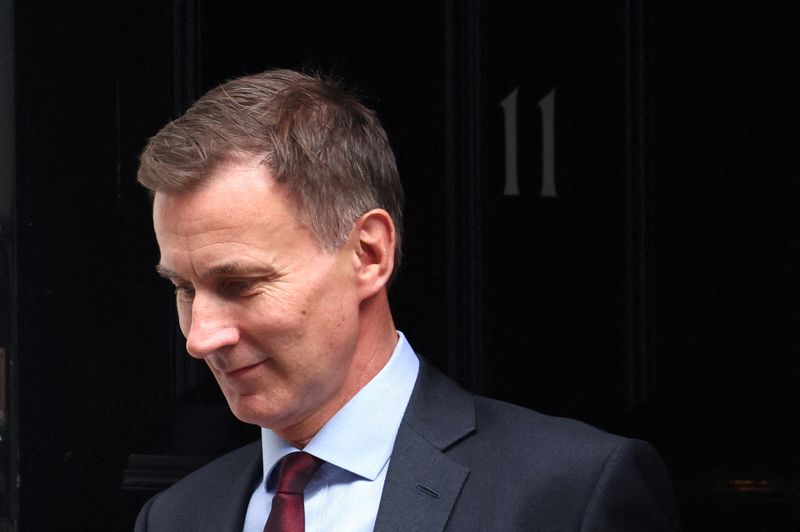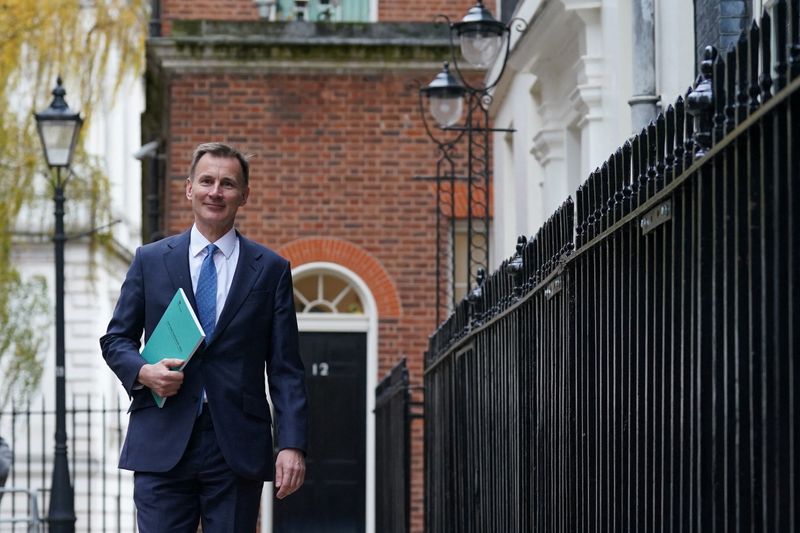LONDON (Reuters) - British finance minister Jeremy Hunt on Wednesday said he would cut the amount of National Insurance social security contributions paid by 27 million workers in a move that will save employees hundreds of pounds a year.
Hunt said the government would reduce the rate of National Insurance contributions (NICs) for employees by two percentage points, a bigger reduction than expected, and for the self-employed by one percentage point.
Employees earning more than about 12,570 pounds ($15,663) a year currently pay 12% in NICs on their earnings up to about 50,270 pounds, while self-employed workers pay 9%.
Hunt said the cut, effective from January, would be worth about 450 pounds a year for an employee earning 35,000 pounds.
"If we want people to get up early in the morning, if we want people to work nights, if we want an economy where people go the extra mile and work hard then we need to recognise that their hard work benefits all of us," Hunt told parliament in his Autumn Statement budget update speech.
Britain's independent budget watchdog, the Office for Budget Responsibility, estimated the NICs rate cut would cost the government 10 billion pounds in the 2024-25 financial year.
But the cuts to social security payments come after the government previously froze the earnings thresholds for National Insurance until April 2028.
Freezing the thresholds, rather than allowing them to rise with inflation as is usual, pulls more workers into paying higher amounts of National Insurance as their earnings rise, raising more money for the government.

Paul Johnson, director of The Institute for Fiscal Studies think tank, said Wednesday's announcement may be the first cut in the main employee National Insurance rate in history, apart from the reversal of a short-lived hike last year.
But he added: "Taxes on income and earnings are still much higher than three years ago. This undoes only a small fraction of the huge tax increase resulting from the freezing of income tax allowances and thresholds."
